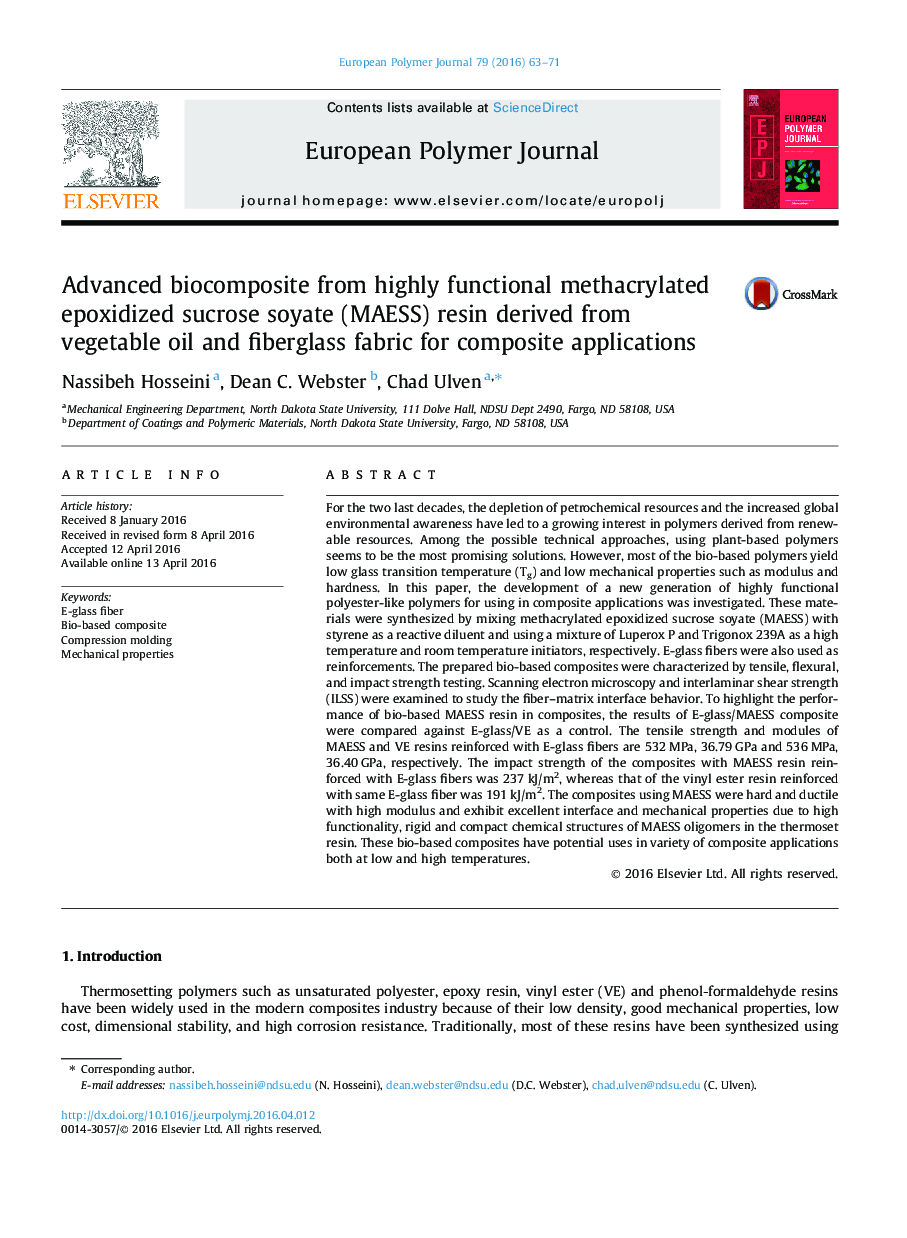| کد مقاله | کد نشریه | سال انتشار | مقاله انگلیسی | نسخه تمام متن |
|---|---|---|---|---|
| 1401329 | 1501356 | 2016 | 9 صفحه PDF | دانلود رایگان |

• Highly-functional bio-based methacrylated epoxidized sucrose soyate (MAESS) were developed.
• MAESS was used as a matrix for compression molding E-glass composites.
• High bio-based content composites were found to outperform petrochemical based counterparts.
• SEM of fractured composites revealed improved wetting of fibers enhancing interfacial bonding.
For the two last decades, the depletion of petrochemical resources and the increased global environmental awareness have led to a growing interest in polymers derived from renewable resources. Among the possible technical approaches, using plant-based polymers seems to be the most promising solutions. However, most of the bio-based polymers yield low glass transition temperature (Tg) and low mechanical properties such as modulus and hardness. In this paper, the development of a new generation of highly functional polyester-like polymers for using in composite applications was investigated. These materials were synthesized by mixing methacrylated epoxidized sucrose soyate (MAESS) with styrene as a reactive diluent and using a mixture of Luperox P and Trigonox 239A as a high temperature and room temperature initiators, respectively. E-glass fibers were also used as reinforcements. The prepared bio-based composites were characterized by tensile, flexural, and impact strength testing. Scanning electron microscopy and interlaminar shear strength (ILSS) were examined to study the fiber–matrix interface behavior. To highlight the performance of bio-based MAESS resin in composites, the results of E-glass/MAESS composite were compared against E-glass/VE as a control. The tensile strength and modules of MAESS and VE resins reinforced with E-glass fibers are 532 MPa, 36.79 GPa and 536 MPa, 36.40 GPa, respectively. The impact strength of the composites with MAESS resin reinforced with E-glass fibers was 237 kJ/m2, whereas that of the vinyl ester resin reinforced with same E-glass fiber was 191 kJ/m2. The composites using MAESS were hard and ductile with high modulus and exhibit excellent interface and mechanical properties due to high functionality, rigid and compact chemical structures of MAESS oligomers in the thermoset resin. These bio-based composites have potential uses in variety of composite applications both at low and high temperatures.
Figure optionsDownload as PowerPoint slide
Journal: European Polymer Journal - Volume 79, June 2016, Pages 63–71